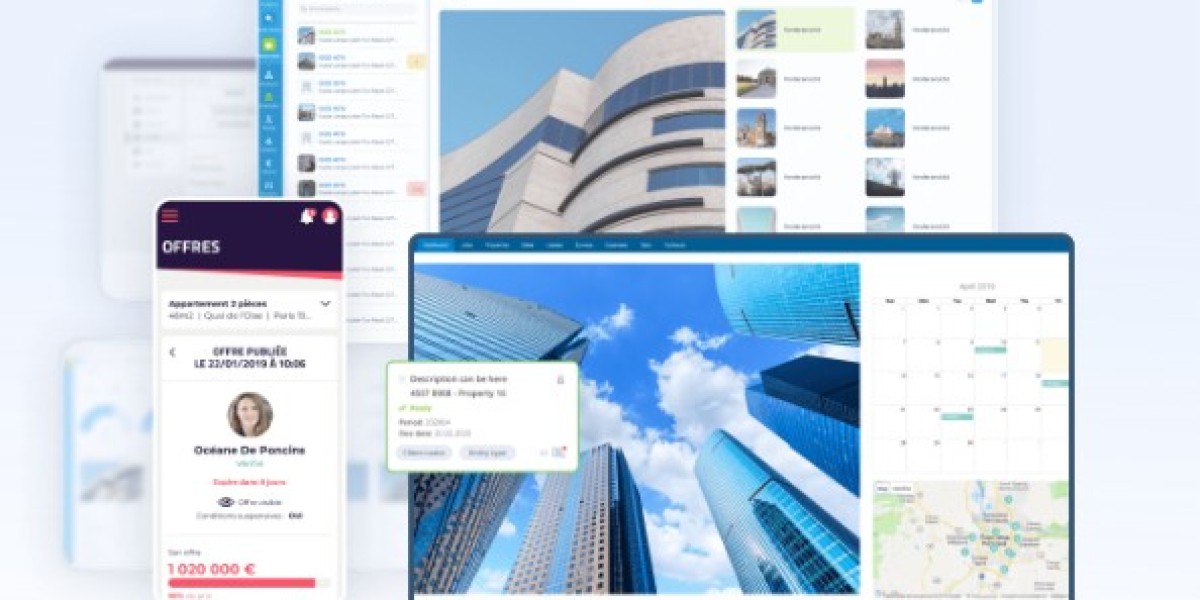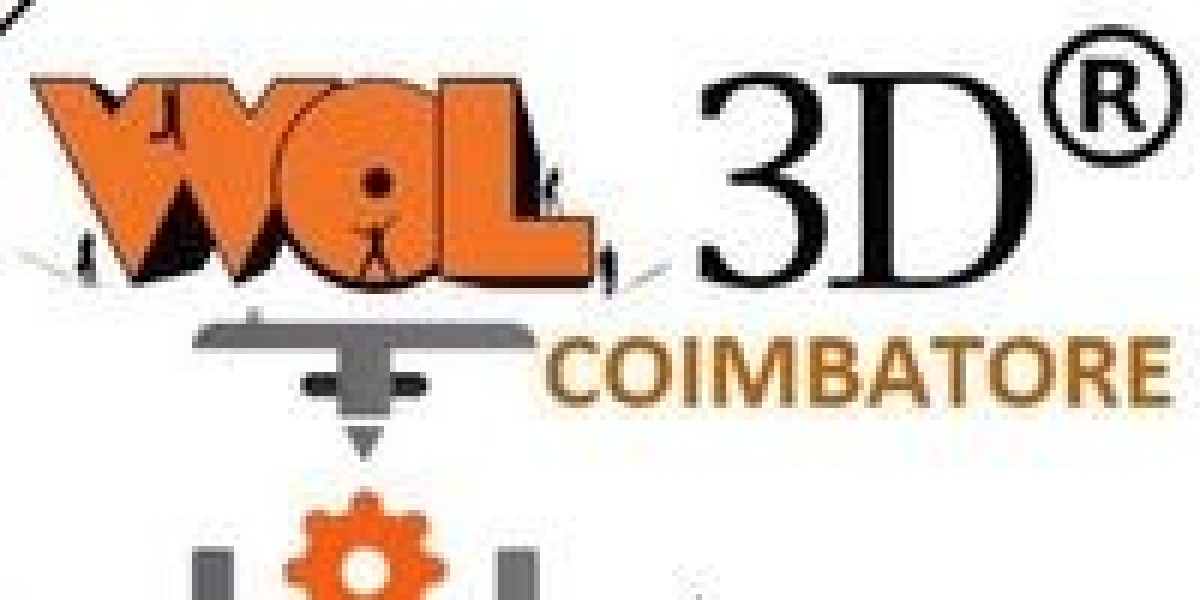In today’s fast-paced real estate market, effective property management is critical for maintaining high occupancy rates, ensuring tenant satisfaction, and maximizing revenue. Property management software (PMS) has become an essential tool for property managers, enabling them to streamline operations, automate tedious tasks, and provide better service to tenants. As a result, property management software development service have gained significant traction in the real estate sector. This article delves into the importance of property management software, the key features it should offer, and how to choose the right development service to meet your specific needs.
Understanding Property Management Software
Property management software is designed to help property managers oversee and streamline their day-to-day operations, which include managing properties, tenants, and maintenance requests. The primary goal of such software is to reduce the workload of property managers, minimize human error, and enhance the overall efficiency of property management processes.
Key Benefits of Property Management Software
Increased Efficiency: Automation of routine tasks such as rent collection, lease management, and maintenance tracking allows property managers to focus on more strategic activities, improving overall efficiency.
Enhanced Communication: PMS typically includes features that facilitate better communication between property managers, tenants, and maintenance teams. This leads to quicker resolutions of issues and higher tenant satisfaction.
Data Management and Analytics: With a centralized database, property managers can easily access information related to tenants, leases, and financials. Advanced analytics can provide insights into occupancy trends, rental income, and maintenance costs.
Improved Financial Management: PMS offers tools for budgeting, expense tracking, and financial reporting, enabling property managers to keep a close eye on their finances.
Mobile Access: Many modern PMS solutions offer mobile applications, allowing property managers to manage their properties on the go, respond to tenant inquiries in real-time, and handle emergencies efficiently.
Essential Features of Property Management Software
When considering property management software development services, it is crucial to identify the features that will best serve your business needs. Here are some key functionalities to consider:
1. Tenant and Lease Tracking
A robust tenant and lease tracking feature allows property managers to maintain comprehensive records of tenants, including contact information, lease terms, and payment history. This feature should also send automatic reminders for lease renewals and rent due dates.
2. Online Rent Collection
With the rise of digital payments, an online rent collection system is essential. This feature enables tenants to pay their rent through various online payment methods, reducing late payments and ensuring timely cash flow.
3. Maintenance Management
An efficient maintenance management system allows tenants to submit maintenance requests online, which can be tracked and managed by property managers. This streamlines communication and ensures that issues are resolved quickly.
4. Accounting and Financial Reporting
An integrated accounting module can help property managers track income and expenses, generate financial reports, and manage budgets. This feature simplifies financial management and aids in compliance with tax regulations.
5. Tenant Screening
A comprehensive tenant screening feature can help property managers evaluate prospective tenants through background checks, credit history checks, and rental history verification. This ensures that only qualified tenants are selected for tenancy.
6. Reporting and Analytics
Advanced reporting tools can generate insights on occupancy rates, tenant turnover, and maintenance costs. These analytics help property managers make informed decisions based on real-time data.
7. Mobile Compatibility
With an increasing reliance on mobile devices, having a mobile-friendly interface is crucial. A mobile app can provide property managers and tenants with easy access to information and functionalities anytime, anywhere.
Choosing the Right Property Management Software Development Service
Selecting a property management software development service is a critical decision that can impact the success of your property management operations. Here are some factors to consider when making your choice:
1. Experience and Expertise
Look for a development service with extensive experience in creating property management solutions. Review their portfolio to assess their technical skills and industry knowledge.
2. Customization Options
Every property management business has unique needs. Ensure that the development service can offer a tailored solution that meets your specific requirements, including scalability for future growth.
3. Technology Stack
Inquire about the technology stack the development service uses. A robust technology foundation ensures that the software is reliable, secure, and capable of integrating with other systems.
4. User Experience (UX)
User-friendly design is essential for ensuring that property managers and tenants can easily navigate the software. Request demos to assess the UX of the proposed solutions.
5. Support and Maintenance
Post-launch support and maintenance are vital for the long-term success of your software. Ensure that the development service offers ongoing support and updates to keep your software running smoothly.
6. Cost Structure
Understand the pricing model of the development service, including upfront costs, ongoing maintenance fees, and potential additional expenses. Choose a solution that provides value without exceeding your budget.
The Development Process of Property Management Software
Understanding the development process can help property managers make informed decisions and ensure a successful outcome. Here are the typical steps involved in developing property management software:
1. Requirements Gathering
The development process begins with gathering requirements. This involves meeting with stakeholders to understand their needs, workflows, and the specific challenges they face in property management.
2. Planning and Design
Once the requirements are established, the development team creates a project plan, including timelines and milestones. A prototype or wireframe may be developed to visualize the user interface and functionality.
3. Development
During this phase, the actual coding takes place. The development team builds the software according to the specifications outlined in the planning phase, ensuring that all features are implemented correctly.
4. Testing
Quality assurance is a critical step in the development process. The software undergoes rigorous testing to identify and fix bugs, ensure functionality, and improve user experience.
5. Deployment
After successful testing, the software is deployed for use. This phase may involve data migration from existing systems and training for property managers and staff.
6. Maintenance and Support
Post-launch, the development team provides ongoing support and maintenance. This includes addressing any issues that arise, implementing updates, and adding new features based on user feedback.
Case Studies: Successful Implementations of Property Management Software
Case Study 1: XYZ Property Management
XYZ Property Management, a mid-sized company managing over 500 rental units, struggled with manual processes and inefficient communication between tenants and property managers. They partnered with a software development company to create a custom property management solution.
Solution Implemented:
- A user-friendly online portal for tenants to pay rent and submit maintenance requests.
- A robust tenant screening module that improved the quality of tenants.
- Automated reminders for lease renewals and rent due dates.
Results:
- A 30% reduction in late payments.
- Increased tenant satisfaction scores due to quicker maintenance response times.
- Enhanced operational efficiency, allowing property managers to focus on growth strategies.
Case Study 2: ABC Real Estate Group
ABC Real Estate Group needed a comprehensive solution to manage its diverse property portfolio. They chose to work with a software development service that specialized in PMS.
Solution Implemented:
- An integrated accounting system for tracking income and expenses.
- Advanced reporting tools to analyze occupancy rates and tenant turnover.
- A mobile app for property managers and tenants.
Results:
- Improved financial visibility, allowing for better budgeting and forecasting.
- Enhanced communication through the mobile app, leading to higher tenant engagement.
- Streamlined operations, resulting in a 40% reduction in administrative overhead.
Future Trends in Property Management Software Development
As technology continues to evolve, property management software will also undergo significant changes. Here are some trends to watch:
1. Integration with IoT
The Internet of Things (IoT) is set to revolutionize property management. Smart devices can provide real-time data on energy consumption, security, and maintenance needs, allowing for more proactive management.
2. Artificial Intelligence (AI) and Machine Learning
AI can enhance tenant screening processes, automate responses to common inquiries, and provide predictive analytics for property managers. This will enable more informed decision-making and improved tenant experiences.
3. Cloud-Based Solutions
Cloud computing will continue to dominate property management software development. Cloud-based solutions offer greater flexibility, scalability, and cost-effectiveness, allowing property managers to access their software from anywhere.
4. Enhanced Data Security
With the increasing reliance on digital solutions, data security will remain a top priority. Development services will need to implement robust security measures to protect sensitive tenant information.
5. Mobile-First Solutions
The demand for mobile access will grow, leading to the development of mobile-first property management solutions that cater to the needs of on-the-go property managers and tenants.
Conclusion
The demand for property management software development services is on the rise, driven by the need for increased efficiency, better tenant communication, and enhanced financial management. By understanding the essential features of property management software, the development process, and emerging trends, property managers can make informed decisions when selecting a software development service.
Investing in the right property management software can lead to significant improvements in operational efficiency, tenant satisfaction, and overall business performance. As the real estate landscape continues to evolve, staying ahead of the curve with innovative technology solutions will be essential for property management success.






